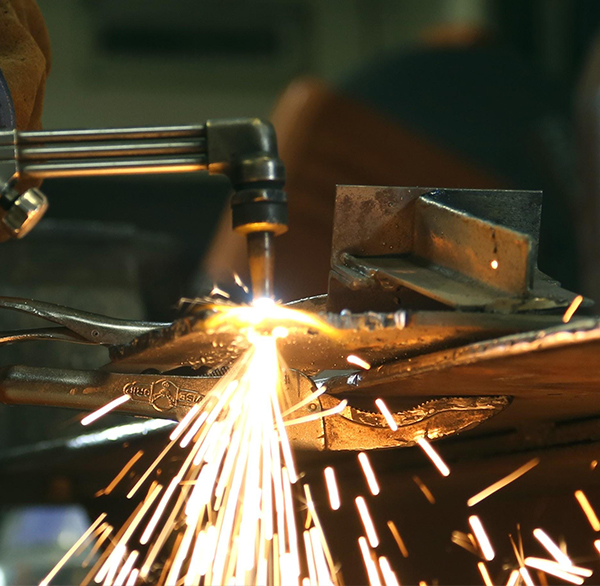Industry Knowledge Extension
Bronze is an alloy of copper and tin, with the exact proportion of each metal varying depending on the desired properties of the material. Other elements, such as zinc, lead, and nickel, may also be added to bronze alloys to improve specific characteristics. Here are some common bronze alloys and their properties:
Phosphor bronze - This alloy contains copper, tin, and phosphorus, and is known for its excellent corrosion resistance, electrical conductivity, and spring properties. It is commonly used in electrical contacts, springs, and gears.
Aluminum bronze - This alloy contains copper and aluminum, and has excellent strength, corrosion resistance, and wear resistance. It is commonly used in marine applications, such as propellers, as well as in heavy-duty equipment.
Silicon bronze - This alloy contains copper, silicon, and small amounts of manganese, tin, and zinc. It is known for its excellent corrosion resistance, particularly in marine environments, and is commonly used in boat hardware, sculptures, and architectural elements.
Nickel bronze - This alloy contains copper, nickel, and zinc, and has high strength, corrosion resistance, and wear resistance. It is commonly used in heavy-duty industrial applications, such as valve components and pump parts.
Manganese bronze - This alloy contains copper, zinc, and manganese, and has high strength and excellent corrosion resistance. It is commonly used in marine hardware, as well as in propellers and valve components.
Tin bronze - This alloy contains copper and tin, and has good corrosion resistance and wear resistance. It is commonly used in bearings, bushings, and gears.
Bronze alloy materials have a wide range of roles and applications due to their unique properties and characteristics. Here are some common roles of bronze alloy materials:
Industrial applications - Bronze alloys are often used in heavy-duty industrial applications, such as valve components, pump parts, and bushings. These materials have high strength, wear resistance, and corrosion resistance, making them ideal for applications where high loads and harsh environments are present.
Marine applications - Bronze alloys are commonly used in marine hardware, such as propellers, fittings, and fasteners, due to their excellent corrosion resistance and durability in saltwater environments.
Electrical applications - Bronze alloys are often used in electrical contacts, switches, and connectors due to their excellent electrical conductivity and low resistance.
Artistic and decorative applications - Bronze alloys are also popular in artistic and decorative applications, such as sculptures and architectural elements. These materials can be cast into complex shapes and have a beautiful golden-brown color that ages well over time.
Musical instruments - Bronze alloys are commonly used in the construction of musical instruments, such as cymbals, bells, and gongs. These materials produce a unique, rich tone when struck, and are prized for their durability and longevity.
Overall, bronze alloy materials have many roles and applications due to their excellent combination of strength, durability, and corrosion resistance.
